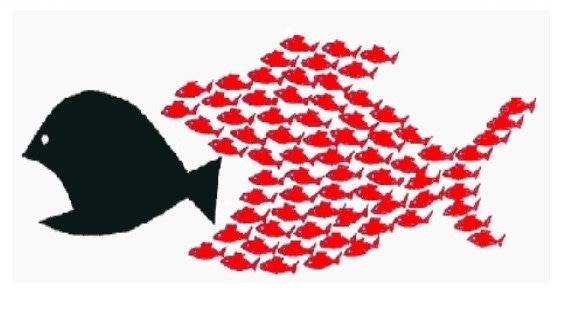Introduction:
In an era dominated by digital interconnectedness, the boundaries of warfare have expanded beyond traditional battlefields into the realms of cyberspace. The recent interview titled "The TRUTH is coming out in the Baltimore Bridge cyber attack" featuring Lara Logan, conducted by Redacted News, offers a profound analysis of the evolving landscape of cyber warfare. With her extensive experience and investigative prowess, Logan provides invaluable insights into the complexities and challenges surrounding the Baltimore Bridge cyber attack and its broader implications for national security. This analysis delves deep into the revelations brought forth by Logan, shedding light on the intricacies of modern conflict in the digital age.
The Challenge of Attribution in Cyber Warfare
One of the most daunting challenges in addressing cyber attacks is the issue of attribution. According to Logan, the task of pinpointing the perpetrators behind a cyber attack is "very challenging," complicated by the ability of attackers to mask their true origins. "You may have very strong indicators," Logan notes, "but it's going to not just rest on the Cyber information." The inherent nature of cyber warfare, where attackers can disguise their attacks to appear as if they originate from other nations, adds layers of complexity to the investigation process.
This difficulty in attribution necessitates a multi-faceted approach to investigation, combining cyber evidence with other forms of intelligence. However, as Logan points out, the digital traces left by attackers can often be manipulated or hidden, making cyber warfare the "invisible crime." This invisibility not only complicates the response but also emboldens attackers, knowing they can potentially evade identification and retaliation.
The Broader Impact of Cyber Attacks
The ramifications of cyber attacks extend far beyond the immediate disruption they cause. Logan highlights a variety of scenarios where cyber warfare has had tangible, sometimes devastating, consequences. From wildfires in West Texas affecting the beef industry to the leakage of thousands of Americans' private data, the impacts of these attacks are diverse and far-reaching. They can disrupt essential services, damage economic resources, and instill a sense of vulnerability and fear within the population.
Moreover, Logan emphasizes the cumulative effect of these incidents. Described as "Death By A Thousand Cuts," the strategy behind these attacks appears to be one of gradual erosion, aiming to weaken a nation's infrastructure, economy, and morale over time. "All of these things add up to the destruction of the United States," Logan asserts, underlining the ultimate goal of cyber adversaries.
The Role of Journalism in Cyber Warfare
In the fight against cyber threats, the role of journalism cannot be understated. Logan, despite facing personal attacks and challenges, remains committed to uncovering and reporting the truth about cyber warfare. "The more you see somebody being attacked, the more important it is for you to take a critical look at what they're saying," she advises, highlighting the importance of skepticism and independent investigation in an era where misinformation can spread as rapidly as truth.
Her words serve as a reminder of the critical role that journalists play in educating the public, holding powers accountable, and shedding light on the shadowy maneuvers in the digital realm. "You never have to take my word for it," Logan states, advocating for an informed public that seeks out facts and diverse perspectives.
Conclusion
The insights provided by Laura Logan offer a stark reminder of the complexities and dangers of cyber warfare. In an era where conflicts can unfold unseen and the impacts of digital attacks can be profound, understanding and addressing cyber threats is more important than ever. It requires a collective effort from governments, the private sector, and individuals to safeguard against these invisible assaults. As we navigate this digital battlefield, the work of journalists like Logan remains an essential beacon, guiding us toward awareness and action in the face of the unseen adversary.
Support Our Work with a Bitcoin Donation
We also offer the opportunity to support our work and help us continue building the Financial Anarchy community. If you would like to contribute, we gratefully accept donations in Bitcoin. Your support will enable us to create more educational content, engage in meaningful activism, and further our mission of challenging the status quo. To donate, please use the following Bitcoin address:
bc1qmzzj5lfhe5ghv2yh3tfgt3qcuycl3r6n4llrsk
Thank you for joining us on this journey of understanding and change. Together, we can shape a brighter financial future for all.






